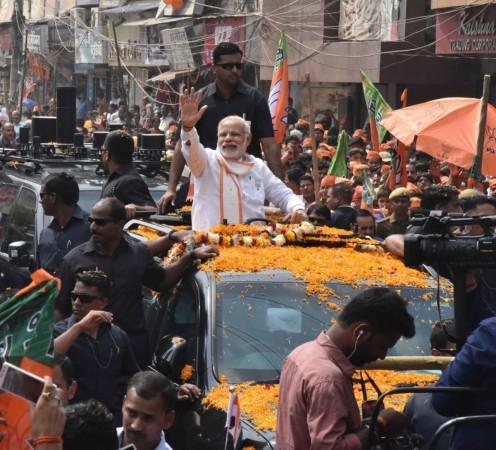
Politicians, they say, always play it safe. But Prime Minister Narendra Modi perhaps doesn't belong to that breed. The BJP strongman has proved – ever since he put his foot beyond the borders of his home state Gujarat – that he is not one of those traditional leaders who try to secure it first, before winning.
Modi has seldom fallen short of surprising his friends as well as his foes whenever he has taken a decision. The latest decision is his selection of firebrand Hindutva leader Yogi Adityanath as the chief minister of the all-important state of Uttar Pradesh after the BJP swept the Assembly elections held there in February and March.
People are fearing now that Yogi would not take long before misutilising the brute majority to proclaim a majoritarian rule in the state, which also has a considerable Muslim population. But therein lies the Modi factor.
The prime minister, just like the Dhonis and Kohlis in a cricket match, prefers to play his cards instead of holding them back. He has done it a number of times so far, even before becoming the PM, and on most occasions, he has delivered the punch.
Here are five occasions when Modi took a gamble and it paid off:
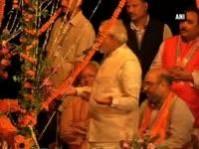
Contesting 2014 Lok Sabha election from Varanasi: It was undoubtedly a big gamble by Modi (that he also contested from Vadodara makes it evident) but he pulled it off. Modi was never a face on the national stage until that election and he had to overcome many hurdles to make his space. The man, who was still carrying the image of a mass murderer, risked contesting the election from a state which has a big presence of the minority community.
Moreover, he chose a constituency that was unlike any of the seats in a developed state like Gujarat. On top of it, the BJP's old guard was not ready to vacate the seat for Modi. Apart from Murli Manohar Joshi, the sitting MP from Varanasi, even Sushma Swaraj had expressed reservation over Modi contesting from the seat in eastern UP, saying it would send across the wrong message of Modi wooing the majority votes even while leading the BJP in the election on the development plank.
But as it turned out, Modi decimated all his opponents in Varanasi, including Aam Aadmi Party's Arvind Kejriwal. Had he lost from Varanasi, Modi's historical journey would have been a less exciting one but he started it with a bang. That a PM should be from UP is a tradition in Indian politics and Modi showed he is no exception.
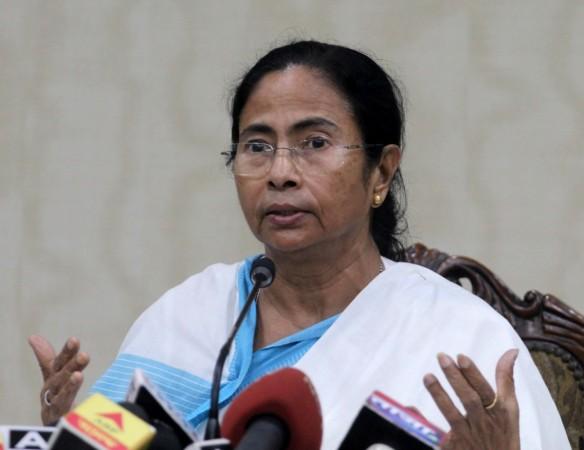
Taking on too many enemies ahead of elections: One common question that did the rounds in the run-up to the 2014 Lok Sabha election was how Modi would manage to stitch up a coalition – something that Atal Behari Vajpayee – had done, in case the BJP or NDA failed to get a majority. The question became all the more relevant as Modi did not have a single friend in the other big parties.
Starting from Nitish Kumar, who even ended the JD(U)'s relation with the NDA, to Mamata Banerjee, who Modi had tried to woo initially but in vain, to Mulayam Singh Yadav and Mayawati and Naveen Patnaik, it was never certain who Modi would find as a probable ally in case the BJP fell short of the majority mark.
Even in the NDA, the Shiv Sena wasn't exactly a great friend for the NDA's prime ministerial candidate – Modi – then. But Modi never really reached out for support from any of the regional satraps who were upset that he was surging ahead in the race to become the PM. True, there were a few parties that had befriended Modi ahead of the big battle but they would never have helped him form the government had his party fallen short of the magic figure.
In the end, the BJP itself got the required numbers and a majority government was back at the Centre after three decades. Had it not been the case, one wonders how long would Modi's journey have lasted as a PM of a coalition.
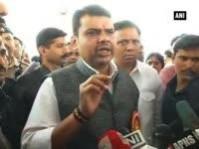
Picking Devendra Fadnavis as Maharashtra CM: In the Modi era, picking new faces for states won by the BJP has been quite a task. Among all these states, picking Devendra Fadnavis as the chief minister of Maharashtra, where the BJP leads the ruling coalition, was always fraught with risk. Fadnavis is not a man from Mumbai, neither does the Brahmin man belong to the backward castes that dominate Mahartashtra's politics today and also leads a government which requires frenemy Shiv Sena's support.
Issues related to the administration of the state also take centre stage frequently. However, despite all this, the Fadnavis government has done well so far. The BJP also did well in the recent civic and rural polls in the state, including in Mumbai, where they came back from nowhere to fall just two seats short of the Sena.
![Surgical strike [Representational Image] Sopore killing](https://data1.ibtimes.co.in/en/full/574985/sopore-killing.jpg?h=450&l=50&t=40)
Going for the 'surgical strike' against Pakistan: In September 2016, the Indian establishment broke the tradition and announced that its Army had conducted a surgical strike on the other side of the LoC. It was to avenge the killing of nearly 20 Indian jawans in an army camp at Uri in Jammu and Kashmir.
A lot has been said about whether the surgical strikes had really been conducted or it was all a PR exercise to placate the angry sentiments following the attack. Whatever the case may be, there is no denying the fact that the real beneficiary was Modi, for he affirmed that he is not the one who would maintain silence in such situations. He did not speak himself but allowed the surgical strikes to do all the talking.
It was not a risk-free thing to do, for provoking the rogues in Pakistan is akin to playing with fire and that could throw the entire subcontinent into an abyss. But Modi still went ahead and proved that his 56-inch chhati (chest) was not for show.
![Demonetisation [Representational Image] PM Modi's surgical strike on black money welcomed: See what the major companies are saying](https://data1.ibtimes.co.in/en/full/626051/pm-modis-surgical-strike-black-money-welcomed-see-what-major-companies-are-saying.jpg?h=450&l=50&t=40)
Demonetisation: This is perhaps the biggest risk that Modi took and that too just a few months ahead of the UP Assembly elections. On the night of November 8, when the entire country remained glued to the television sets to follow US presidential elections, Modi announced that the notes carrying denominations of Rs 500 and Rs 1,000 were henceforth being scrapped.
His government and supporters said it was a massive blow to rackets engaged in fake-note operations or people engaged in black-marketing or even those behind terrorist modules. His critics, on the other hand, said it was a blow to the poor, unorganised sector and was a forceful way to make the country go digital.
The debate soon saw people from all walks of life joining it, either in favour or against. It was also predicted that Modi would pay the price in the UP elections. The BJP swept the state instead, confirming that demonetisation was a gamble which has made Modi great from good.
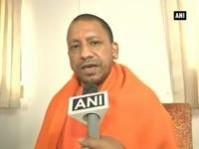
Picking Yogi Adityanath as UP CM: Again a big gamble taken by Modi, who is much confident in the game by now. The BJP's critics and even the liberal supporters might find it hard to digest and expect a sinister plan in place soon, but Modi and his lieutenant Amit Shah have certainly not taken the predicted path.
We still do not know what's in store for UP. The choice for CM apparently looks an ordinary one, but since it is something related to Modi – Indian politics' Man of the Moment – it is difficult to make a forecast anytime soon. Modi's gambles are mostly spot on, as history suggests.
















